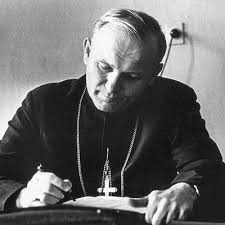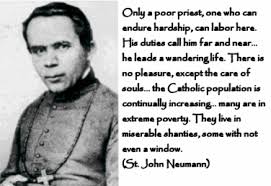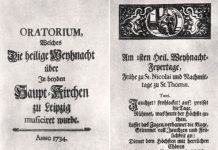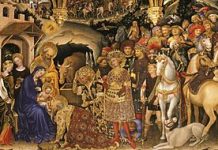Karol Wojytla, the man who would be known to history as John Paul II, is almost the antithesis of a willow-the-wisp like Justin Trudeau. Karol’s character was forged in the fire of suffering, elevated and perfect by the grace of God, to which he corresponded from his youth. Even his obvious intellectual and spiritual stature had its roots in his sheer physical capacity to work, taught to him, as he later admitted, pounding rocks in his youth under the Nazi regime in the stone quarry. Even in the two decades after what we quaintly call ‘retirement age’, people one third his age had trouble keeping up with him.
No brief reflection may do justice to the greatness of the man, and the debt we owe him. Any one of his encyclicals, even many of his letters and addresses, would be enough to earn him a place in history. Yet he wrote and taught on nearly every subject, from the natural to the supernatural, the scientific and the spiritual, and all with a mastery and an (apparent) ease – he had a writing desk set up before the Blessed Sacrament in his private chapel – producing over his life a veritable treasure trove of clarity, profundity, and truth, all the fruit of genius, diligence and that whole mystery of sanctity.
He must have been aware that he was a gifted man, but his humble smile, his obvious joy and simplicity, signify that he was well aware that his many charisms were just that – gifts from God, accepted in humility. He had a task to do, in fact, many tasks – he was one with the ‘ten talents’ – and he fulfilled them well – ten talents more – a good servant just doing what he had been asked to do. Like Saint Peter, to whom he alludes in his inaugural sermon quoted in today’s Office of Readings, he may well have preferred to avoid Rome and the ‘crucifixion’ this would entail, but Christ asks what He will.
As the new Pope went on to say:
Our time calls us, urges us, obliges us, to gaze on the Lord and to immerse ourselves in humble and devout meditation on the mystery of the supreme power of Christ himself… The absolute, and yet sweet and gentle, power of the Lord responds to the whole depths of the human person, to his loftiest aspirations of intellect, will and heart. It does not speak the language of force, but expresses itself in charity and truth.
The new Successor of Peter in the See of Rome today makes a fervent, humble and trusting prayer: Christ, make me become and remain the servant of your unique power, the servant of your sweet power, the servant of your power that knows no dusk. Make me a servant: indeed, the servant of your servants.
And, at the end of all he had done, Christ welcomed home his ‘good and faithful’ servant, where he continues to watch over the Church, a barque tossed now perhaps more than ever by the vicissitudes and sins of this world. We may wonder what he thinks of what is currently going on in Rome and elsewhere; what saves him from despair, if we may speak of such in heaven, is that the former Pope now sees the ‘bigger picture’, all things moving towards their final and eschatological perfection, in which we too may trust and hope.
Pope Saint John Paul II, ora pro nobis et pro Ecclesia!











